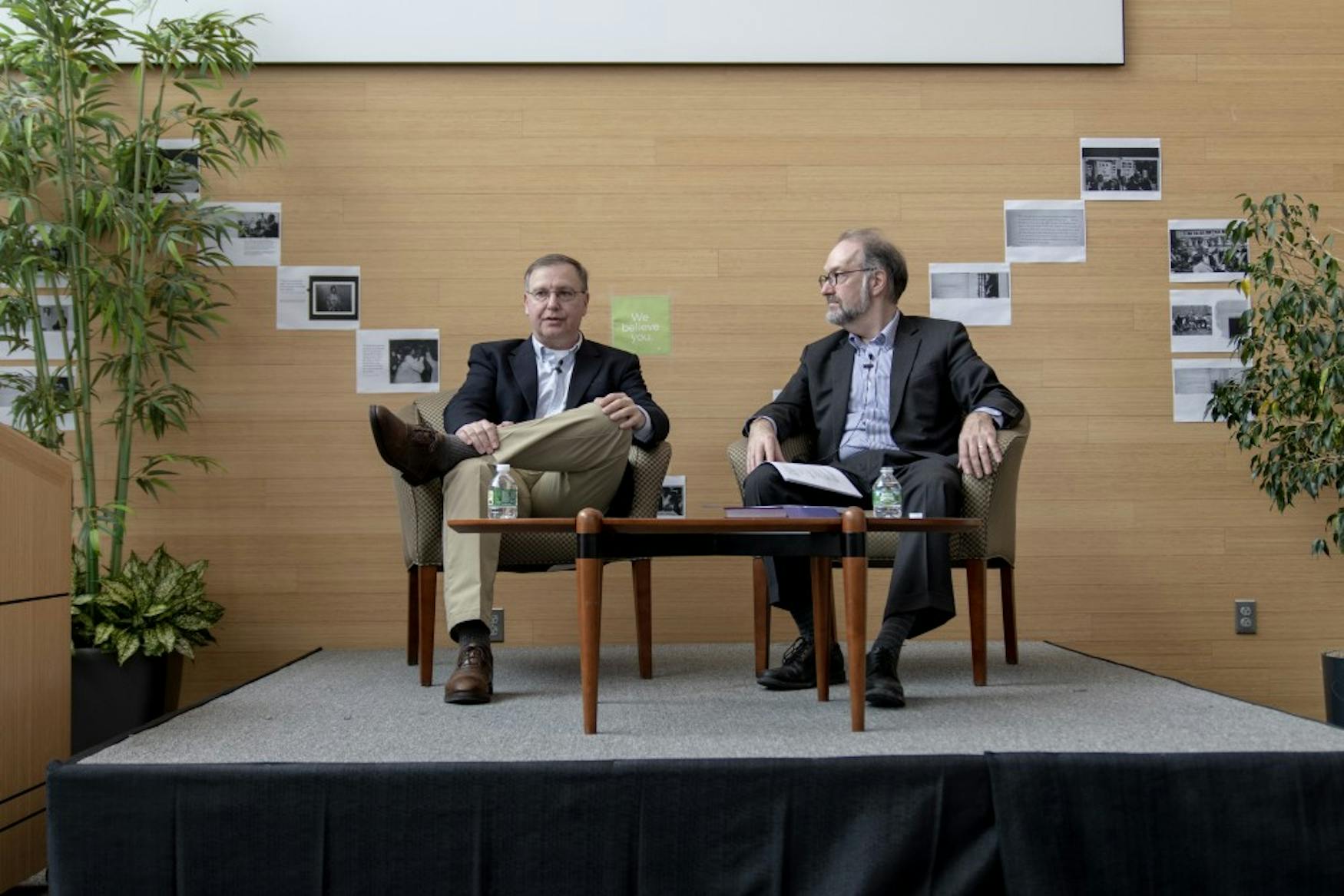Former DoJ official discusses ongoing Mueller investigation
Former senior Federal Bureau of Investigation official Chuck Rosenberg provided a legal context of Special Counsel Robert Mueller’s investigation into President Donald Trump during a visit to the Heller School for Social Policy and Management on Wednesday. He described the criteria for treason, impeachment and obstruction of justice.
Rosenberg has worked for several significant figures in the Mueller investigation, including James Comey, the former director of the Federal Bureau of Investigation, whom Trump fired in 2017, and Mueller himself.
Rosenberg served as the acting administrator of the Drug Enforcement Administration from 2015 to 2017, according to the New York Times. He said that he had “never seen a human being work harder than Bob Mueller,” and that Attorney General nominee William Barr “strikes [him] as a man of integrity.”
He started by pointing to the incredible complexity of the Mueller investigation. First, the indictments themselves are complicated. Rosenberg explained that the Russian military intelligence agency GRU’s officials’ “attack on our election process” was “very, very technically sophisticated” in nature. The indictments also bring with them new legal questions.
“Obstruction of justice requires intent,” Rosenberg explained. “You have to show what someone intended” in order to prove they have obstructed justice, and this is especially pertinent to Trump’s firing of Comey, according to Rosenberg. He said that it is perfectly acceptable for a president to fire the director of the FBI unless it is done for “corrupt purposes,” such as firing him for investigating the president.
As far as the results of the Mueller investigation are concerned, Rosenberg warned audience members to “be patient” and “wait for Mueller to talk in court” before jumping to conclusions about impeachment. He specifically referenced a recent BuzzFeed article, which insinuated that Trump had specifically told his former lawyer Michael Cohen to lie to Congress. Mueller has publicly denied this story, according to the New York Times.
However, Rosenberg did give some ideas about the charges Trump may or may not face. For example, he explained that Trump could not be tried for treason for helping Russian President Vladimir Putin because America wasn’t at war with Russia. He cited 18 U.S. Code 2381, which defines treason only as “giving … aid” to an enemy against whom we have “levied war.”
Rosenberg was unable to offer a concrete answer as to whether or not impeachment would happen. This is because presidents are not impeached solely on the basis of an “objective set of criteria,” Rosenberg said. Rather, “in the end, impeachment is really a political determination,” he added.
When asked about “the timeline” of the investigation, Rosenberg responded that the “Mueller investigation is moving very, very fast.” For context, he added, “If we were just investigating a hospital down the street for healthcare fraud … that would take four years. So I think the Mueller team is moving at the speed of light.”



Please note All comments are eligible for publication in The Justice.